Arnold 允许着色器置换多边形网格节点中的顶点。这些顶点按照着色器所返回向量的方向和幅值进行置换。
在此示例着色器中,我们根据噪波函数计算非线性置换。与传统噪波置换着色器一样,该着色器可以沿曲面法线进行置换,但也可以选择采用置换的峰值和谷值。

这可以通过计算噪波函数及其在两个曲面导数的方向上的增量来完成。该增量将确定这些导数因置换而偏转的幅度。通过反复偏转导数,我们创建了从曲面走弧线的非线性置换。这相当于置换曲面、计算法线,然后重复置换。
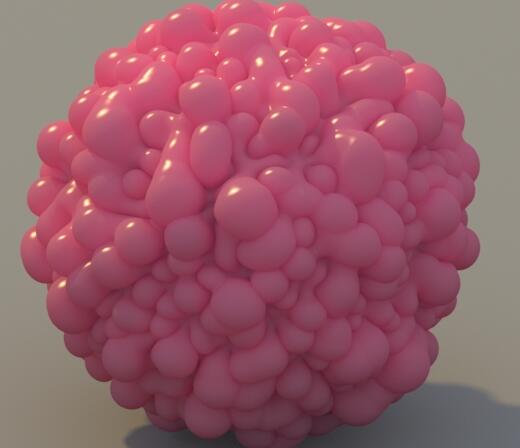
type abs_perlinfreq 0.025amplitude 80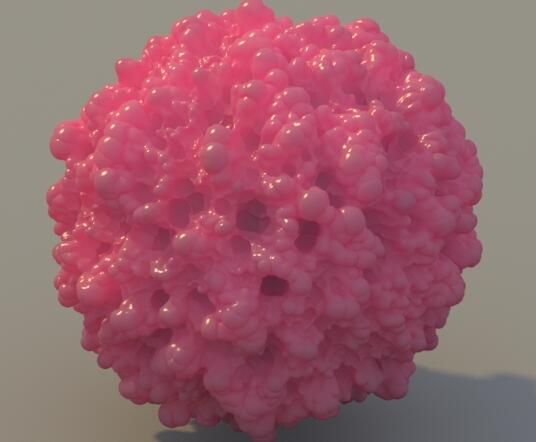
type recursive
freq 0.025
amplitude 40
bloom 3
freq 0.025
amplitude 40
bloom 3
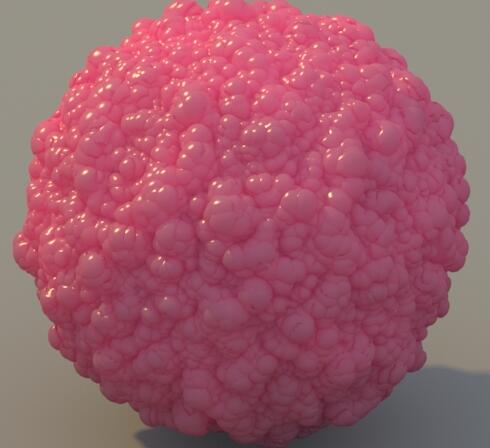
type abs_recursivefreq 0.025amplitude 40bloom 3
type abs_perlinfreq 0.025amplitude -40bloom -4源代码:
/*
* nonlinear noise displacement shader
*/
#include
#include
enum
{
p_octaves,
p_freq,
p_amplitude,
p_bloom,
p_type
};
AI_SHADER_NODE_EXPORT_METHODS(NonlinNzMethods);
#define ENUM_SCALAR_TYPES { "perlin", "abs_perlin", "recursive", "abs_recursive", NULL };
#define PERLIN 0
#define ABS_PERLIN 1
#define RECURSIVE 2
#define ABS_RECURSIVE 3
const char *types_enum[] = ENUM_SCALAR_TYPES;
node_parameters
{
AiParameterInt ("octaves" , 3);
AiParameterFlt ("freq" , 1);
AiParameterFlt ("amplitude", 1);
AiParameterFlt ("bloom" , 1);
AiParameterEnum("type" , PERLIN, types_enum);
}
float scalarfunc(AtVector P, int type, int octaves)
{
float doubler = 1;
float NzAccum = 0;
switch (type)
{
case PERLIN:
return AiPerlin3(P);
case ABS_PERLIN:
return fabs(AiPerlin3(P));
case RECURSIVE:
for (int i = 0; i < octaves; i++) {
NzAccum += AiPerlin3(P*doubler) / doubler;
doubler *= 2;
}
return NzAccum;
case ABS_RECURSIVE:
for (int i = 0; i < octaves; i++) { NzAccum += fabs(AiPerlin3(P*doubler)) / doubler; doubler *= 2; } return NzAccum; } return AiPerlin3(P); } shader_evaluate { AtVector Ploc, Uloc, Vloc; // noise sample location, and over in U and V locations float Np, Nu, Nv; // noise at P, noise at location over in U and V float Udelt, Vdelt; // delta in the noise over in U and V float delta = .01; // distance delta for noise samples int octaves = AiShaderEvalParamInt(p_octaves); float freq = AiShaderEvalParamFlt(p_freq); float amplitude = AiShaderEvalParamFlt(p_amplitude); float bloom = AiShaderEvalParamFlt(p_bloom); int type = AiShaderEvalParamInt(p_type); AtVector U, V; if (sg->dPdu != AI_V3_ZERO && sg->dPdv != AI_V3_ZERO)
{
// tangents available, use them
U = sg->dPdu;
V = sg->dPdv;
}
else
{
// no tangents given, compute a pair
AiV3BuildLocalFramePolar(U, V, sg->N);
}
if (type > ABS_PERLIN)
{
// adjust delta to highest frequency in recursive noise
delta *= pow(.5, octaves) * 2;
}
Ploc = sg->Po * freq;
Uloc = Ploc + U * delta;
Vloc = Ploc + V * delta;
// noise sampled at P, and over in U and V
Np = scalarfunc(Ploc, type, octaves);
Nu = scalarfunc(Uloc, type, octaves);
Nv = scalarfunc(Vloc, type, octaves);
Udelt = (Nu - Np) * bloom;
Vdelt = (Nv - Np) * bloom;
AtVector Pstepped = sg->P;
int steps = 10;
float stepscale = amplitude / steps;
for (int i = 0; i < steps; i++) { // stepdir is the cross product of the derivatives AtVector stepdir = AiV3Cross(U,V); // deflect the derivatives U = AiV3Normalize(U + (stepdir * Udelt * stepscale)); V = AiV3Normalize(V + (stepdir * Vdelt * stepscale)); Pstepped += stepdir * Np * stepscale; } sg->out.VEC() = Pstepped - sg->P;
}
node_initialize
{
}
node_update
{
}
node_finish
{
}
node_loader
{
if (i > 0) return false;
node->methods = NonlinNzMethods;
node->output_type = AI_TYPE_VECTOR;
node->name = "nonlinear_noise";
node->node_type = AI_NODE_SHADER;
strcpy(node->version, AI_VERSION);
return true;
}
以下 .ass 文件使用此着色器:
options
{
AA_samples 3
xres 640
yres 480
GI_diffuse_depth 1
GI_diffuse_samples 3
}
plane
{
name myplane
point 0 -8 0
normal 0 1 0
shader groundshader
}
polymesh
{
name mysph
nsides 6 1 UINT 4 4 4 4 4 4
vidxs 24 1 UINT
0 4 5 1 1 5 6 2 2 6 7 3 3 7 4 0 3 0 1 2 4 7 6 5
vlist 8 1 b64VECTOR
AAB6wwAAAAAAAHrDAAB6QwAAAAAAAHrDAAB6QwAAAAAAAHpDAAB6wwAAAAAAAHpDAAB6wwAA+kMAAHrDAAB6QwAA+kMAAHrDAAB6QwAA+kMAAHpDAAB6wwAA+kMAAHpD
smoothing on
subdiv_type catclark
subdiv_iterations 7
disp_map sphere_disp
disp_padding 50
matrix
0.94693 0 0.321439 0
0 1 0 0
-0.321439 0 0.94693 0
0 0 0 1
shader sphere_surf
}
standard_surface
{
name sphere_surf
base 0.3
base_color 0.8 0.8 1
specular 1
specular_color 0.8 0.8 1
specular_roughness 0.3
subsurface 0.5
subsurface_color 1 0.05 0.2
subsurface_radius 80 80 80
}
nonlinear_noise
{
name sphere_disp
type perlin
freq 0.025
amplitude 80
bloom 1
}
standard_surface
{
name groundshader
base 1
base_color 0.4 0.4 0.4
specular 0
}
persp_camera
{
name mycamera
fov 11
position 3677.0129 1039.1904 597.0592
look_at 0 250 0
up 0 1 0
}
point_light
{
name key
position -6000 10000 6000
radius 400
color 1 0.7 0.2
intensity 1
exposure 28
}
skydome_light
{
name mysky
color 0.7 0.8 0.9
intensity 0.9
}


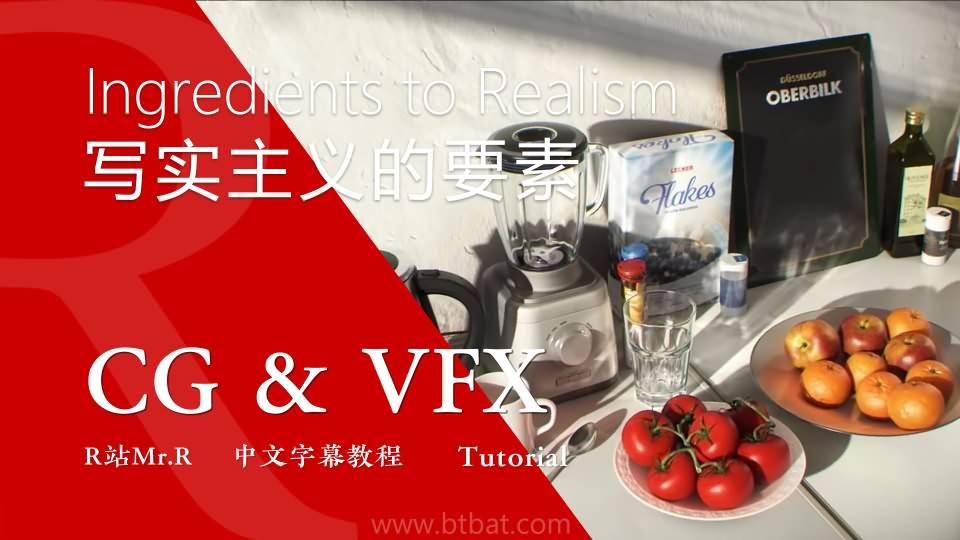








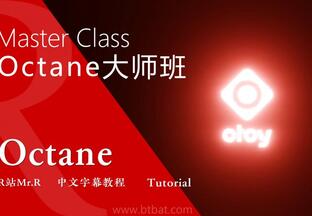





{每日热闻}蜜蜂大厅房卡购买链接【QQ—89223577】无需要打开直接添加▊新道游系列▊大圣系列▊新神兽系列▊老神兽系列▊悠悠系列H5等游戏房卡--新玄龙十七人天九房卡【QQ—89223577】无需要打开直接添加▊1新道游系列▊大圣系列▊新神兽系列▊老神兽系列▊悠悠系列H5等游戏房卡1 月 30 日消息,当地时间 1 月 29 日,据美国 CNBC 报道,微软股价一度大跌约 10%,原因是最新财报未能完全打消市场疑虑,创下自 2020 年 3 月以来最大单日跌幅。
这一跌幅让微软市值蒸发 3570 亿美元(IT之家注:现汇率约合 2.48 万亿元人民币),当地时间周四收盘时市值降至 3.22 万亿美元。
经验谈论!天狼大厅房卡使用指南【QQ—89223577】无需要打开直接添加▊新道游系列▊大圣系列▊新神兽系列▊老神兽系列▊悠悠系列H5等游戏房卡--方块A大厅购买房卡【QQ—89223577】无需要打开直接添加▊1新道游系列▊大圣系列▊新神兽系列▊老神兽系列▊悠悠系列H5等游戏房卡1月23日,乐道L90马到成功版正式上市并陆续到店,新版本基于现有乐道L90 Max和Ultra六座版本打造,标配价值38,470元的「马到成功」专属定制套装,整车购买29.68万元起售,电池租用方案购买21.08万元起售,同时可享至高1.9万元购车权益,新车将于2月1日开启交付。
“实时谈论”海龙大厅房卡获取引导【澂信71161199】无需要打开直接添加▊新道游系列▊大圣系列▊新神兽系列▊老神兽系列▊悠悠系列H5等游戏房卡--七喜大厅十九人三公房卡【澂信71161199】无需要打开直接添加▊1新道游系列▊大圣系列▊新神兽系列▊老神兽系列▊悠悠系列H5等游戏房卡如果你喜欢宝马iX3,却又盼着它能多几分运动范儿、少一点家用实用性,那这下可有好消息了,有外媒已经拍到全新宝马iX4的测试身影。
这款电动跨界轿跑车正在欧洲接受路试,它延续了风格更偏向稳重的同门SUV、即新款宝马iX3的设计基因。这一点从车头便一目了然:新车配备标志性的竖向双肾格栅,格栅两侧则搭载宝马最新的水平式大灯设计语言。
每日要闻!人皇大厅房卡创建房间手艺【QQ—89223577】无需要打开直接添加▊新道游系列▊大圣系列▊新神兽系列▊老神兽系列▊悠悠系列H5等游戏房卡--芒果大厅房卡操纵办法【QQ—89223577】无需要打开直接添加▊1新道游系列▊大圣系列▊新神兽系列▊老神兽系列▊悠悠系列H5等游戏房卡12 月 30 日消息,特斯拉(上海)有限公司与“车顶维权”女车主张某周名誉权纠纷案件更新,12 月 19 日,张某周被限制高消费,申请人为特斯拉(上海)有限公司。
12 月 30 日,张某周告诉南都 N 视频记者:“我也是刚看到这个消息,名誉权的案件,我本人已经向上海高院申请再审了。”
据IT之家此前报道,2021 年 4 月 19 日的上海车展期间,特斯拉车主张女士现场爬上一辆展车车顶大喊“特斯拉刹车失灵”,一度引起各方热议。
新旅游群主链接房卡在哪里买【—QQ—89223577】无需要打开直接添加▊1新道游系列▊大圣系列▊新神兽系列▊老神兽系列▊悠悠系列H5等游戏房卡----牛至尊十七人天九房卡【—QQ—89223577】无需要打开直接添加▊1新道游系列▊大圣系列▊新神兽系列▊老神兽系列▊悠悠系列H5等游戏房卡大厅
玄灵大厅房卡使用讲解【—QQ—89223577】无需要打开直接添加▊1新道游系列▊大圣系列▊新神兽系列▊老神兽系列▊悠悠系列H5等游戏房卡----新战狼6人拼十房卡【—QQ—89223577】无需要打开直接添加▊1新道游系列▊大圣系列▊新神兽系列▊老神兽系列▊悠悠系列H5等游戏房卡大厅
七喜大厅15人拼三张房卡【—QQ—89223577】无需要打开直接添加▊1新道游系列▊大圣系列▊新神兽系列▊老神兽系列▊悠悠系列H5等游戏房卡----狂飙大厅房卡使用提示【—QQ—89223577】无需要打开直接添加▊1新道游系列▊大圣系列▊新神兽系列▊老神兽系列▊悠悠系列H5等游戏房卡大厅
新久情11人拼十房卡【—QQ—89223577】无需要打开直接添加▊1新道游系列▊大圣系列▊新神兽系列▊老神兽系列▊悠悠系列H5等游戏房卡----金牛座金花房卡【—QQ—89223577】无需要打开直接添加▊1新道游系列▊大圣系列▊新神兽系列▊老神兽系列▊悠悠系列H5等游戏房卡12月1日的电文,加拿大总理卡尼通过一份新闻稿披露了这一进展。核心信息很明确:加拿大已搞定所有谈判细节,只待程序性步骤即可正式加入欧盟的“欧洲安全行动”。更值得玩味的是,卡尼直接点出动机——为加拿大国防工业“开拓欧洲市场”。
神皇大厅微信9人拼十房卡【—QQ—89223577】无需要打开直接添加▊1新道游系列▊大圣系列▊新神兽系列▊老神兽系列▊悠悠系列H5等游戏房卡----小拇指游乐链接房卡怎么充值【—QQ—89223577】无需要打开直接添加▊1新道游系列▊大圣系列▊新神兽系列▊老神兽系列▊悠悠系列H5等游戏房卡大厅
人生就是一个不断学习的过程听水货到付款网址【拿药认准网址https://0.00.al/Vf2E】【其他均为假药】
听活水货到付款平台【拿药认准网址https://0.00.al/Vf2E】【其他均为假药】
mj药水购买方式【拿药认准网址https://0.00.al/Vf2E】【其他均为假药】
迷水购买网【拿药认准网址https://0.00.al/Vf2E】【其他均为假药】
听活水商城售后服务【拿药认准网址https://0.00.al/Vf2E】【其他均为假药】
听水网店客服联系方式【拿药认准网址https://0.00.al/Vf2E】【其他均为假药】
听活水网店货到付款网站【拿药认准网址https://0.00.al/Vf2E】【其他均为假药】
听活水货到付款网站信阳【拿药认准网址https://0.00.al/Vf2E】【其他均为假药】
听活水网店官方网站【拿药认准网址https://0.00.al/Vf2E】【其他均为假药】
听水购买渠道【拿药认准网址https://0.00.al/Vf2E】【其他均为假药】
听水网安眠水购买【拿药认准网址https://0.00.al/Vf2E】【其他均为假药】
听水网店的货到付款【拿药认准网址https://0.00.al/Vf2E】【其他均为假药】
听水网货到付款网站【拿药认准网址https://0.00.al/Vf2E】【其他均为假药】
迷水购买渠道【拿药认准网址https://0.00.al/Vf2E】【其他均为假药】
听活水商城【拿药认准网址https://0.00.al/Vf2E】【其他均为假药】
安眠水货到付款平台【拿药认准网址https://0.00.al/Vf2E】【其他均为假药】
离间水购买渠道【拿药认准网址https://0.00.al/Vf2E】【其他均为假药】
听活水官网货到付款【拿药认准网址https://0.00.al/Vf2E】【其他均为假药】
听水货到付款平台【拿药认准网址https://0.00.al/Vf2E】【其他均为假药】
听水网店在线订购【拿药认准网址https://0.00.al/Vf2E】【其他均为假药】
听水购买渠道官网【拿药认准网址https://0.00.al/Vf2E】【其他均为假药】
听活水商城官网入口【拿药认准网址https://0.00.al/Vf2E】【其他均为假药】
听活水网购【拿药认准网址https://0.00.al/Vf2E】【其他均为假药】
听水网店在线购物【拿药认准网址https://0.00.al/Vf2E】【其他均为假药】
mj药水购买方式【拿药认准网址https://0.00.al/Vf2E】【其他均为假药】
迷水购买网【拿药认准网址https://0.00.al/Vf2E】【其他均为假药】
听活水货到付款平台【拿药认准网址https://0.00.al/Vf2E】【其他均为假药】
听水货到付款网址【拿药认准网址https://0.00.al/Vf2E】【其他均为假药】
听活水在线订购【拿药认准网址https://0.00.al/Vf2E】【其他均为假药】
催水网店货到付款【拿药认准网址https://0.00.al/Vf2E】【其他均为假药】
迷幻口香糖官网【拿药认准网址https://0.00.al/Vf2E】【其他均为假药】
谜催水网上商城【拿药认准网址https://0.00.al/Vf2E】【其他均为假药】
听活水网店货到付款网站【拿药认准网址https://0.00.al/Vf2E】【其他均为假药】
听活水货到付款网站信阳【拿药认准网址https://0.00.al/Vf2E】【其他均为假药】
听活水价格【拿药认准网址https://0.00.al/Vf2E】【其他均为假药】
mj药网上商城【拿药认准网址https://0.00.al/Vf2E】【其他均为假药】
乖乖听药商城官网入口【拿药认准网址https://0.00.al/Vf2E】【其他均为假药】
三轮子药商城【拿药认准网址https://0.00.al/Vf2E】【其他均为假药】
迷幻口香糖官网【拿药认准网址https://0.00.al/Vf2E】【其他均为假药】
美国进口迷幻粉【拿药认准网址https://0.00.al/Vf2E】【其他均为假药】
崔听迷商城【拿药认准网址https://0.00.al/Vf2E】【其他均为假药】
人生就是一个不断学习的过程╁╃无色无味强效睡眠药●浏览器搜0.00.al/Vf2E●其他均为骗子
╁╃一吃就睡的药货到付款●浏览器搜0.00.al/Vf2E●其他均为骗子
╁╃女用苍蝇药哪种最有效●浏览器搜0.00.al/Vf2E●其他均为骗子
╁╃安眠药商城入口●浏览器搜0.00.al/Vf2E●其他均为骗子
╁╃日本睡眠药系列●浏览器搜0.00.al/Vf2E●其他均为骗子
╁╃强效昏睡液●浏览器搜0.00.al/Vf2E●其他均为骗子
╁╃违禁药哪里能买到●浏览器搜0.00.al/Vf2E●其他均为骗子
╁╃红蜘蛛女士专用药●浏览器搜0.00.al/Vf2E●其他均为骗子
╁╃安眠药商城●浏览器搜0.00.al/Vf2E●其他均为骗子
╁╃蒙汉药秘方大全●浏览器搜0.00.al/Vf2E●其他均为骗子
╁╃进口催药货到付款平台●浏览器搜0.00.al/Vf2E●其他均为骗子
╁╃强效昏睡液货到付款●浏览器搜0.00.al/Vf2E●其他均为骗子
╁╃廊坊催药货到付款服务●浏览器搜0.00.al/Vf2E●其他均为骗子
╁╃国产十大催潮剂排名●浏览器搜0.00.al/Vf2E●其他均为骗子
╁╃睡眠药系列●浏览器搜0.00.al/Vf2E●其他均为骗子
╁╃秒睡喷雾货到付款●浏览器搜0.00.al/Vf2E●其他均为骗子
╁╃强效昏睡液货到付款●浏览器搜0.00.al/Vf2E●其他均为骗子
╁╃廊坊催药货到付款服务●浏览器搜0.00.al/Vf2E●其他均为骗子
╁╃进口催药货到付款平台●浏览器搜0.00.al/Vf2E●其他均为骗子
╁╃催药网货到付款●浏览器搜0.00.al/Vf2E●其他均为骗子
╁╃秒睡喷雾货到付款●浏览器搜0.00.al/Vf2E●其他均为骗子
╁╃泥醉昏睡●浏览器搜0.00.al/Vf2E●其他均为骗子
╁╃乙醚手帕捂晕合集●浏览器搜0.00.al/Vf2E●其他均为骗子
╁╃药物昏迷专题网站●浏览器搜0.00.al/Vf2E●其他均为骗子
╁╃无色无味强效睡眠药●浏览器搜0.00.al/Vf2E●其他均为骗子
╁╃喝醉了酒迷迷糊糊去了●浏览器搜0.00.al/Vf2E●其他均为骗子
╁╃乖乖听药商城最新版●浏览器搜0.00.al/Vf2E●其他均为骗子
╁╃台湾崔药商城●浏览器搜0.00.al/Vf2E●其他均为骗子
╁╃安眠药商城入口●浏览器搜0.00.al/Vf2E●其他均为骗子
╁╃mj药网上商城●浏览器搜0.00.al/Vf2E●其他均为骗子
╁╃听活水商城●浏览器搜0.00.al/Vf2E●其他均为骗子
╁╃迷幻商城官方网站●浏览器搜0.00.al/Vf2E●其他均为骗子
╁╃乖乖听药商城靠谱吗●浏览器搜0.00.al/Vf2E●其他均为骗子
╁╃迷商城购买网站●浏览器搜0.00.al/Vf2E●其他均为骗子
╁╃婉情谷国际商城●浏览器搜0.00.al/Vf2E●其他均为骗子
╁╃迷幻谷商城官网入口●浏览器搜0.00.al/Vf2E●其他均为骗子
╁╃台湾崔药商城●浏览器搜0.00.al/Vf2E●其他均为骗子
╁╃进口催药货到付款平台●浏览器搜0.00.al/Vf2E●其他均为骗子
╁╃乖乖听药商城最新版●浏览器搜0.00.al/Vf2E●其他均为骗子
╁╃春满坊商城●浏览器搜0.00.al/Vf2E●其他均为骗子
╁╃催听药货到付款平台●浏览器搜0.00.al/Vf2E●其他均为骗子
╁╃廊坊催药货到付款服务●浏览器搜0.00.al/Vf2E●其他均为骗子
╁╃台湾崔药商城●浏览器搜0.00.al/Vf2E●其他均为骗子
╁╃弥漫者之夜官网●浏览器搜0.00.al/Vf2E●其他均为骗子
╁╃广州迷幻商城网页版●浏览器搜0.00.al/Vf2E●其他均为骗子
╁╃安眠药商城入口●浏览器搜0.00.al/Vf2E●其他均为骗子
╁╃正品弥漫商城官网入口●浏览器搜0.00.al/Vf2E●其他均为骗子
╁╃迷幻谷商城官网入口●浏览器搜0.00.al/Vf2E●其他均为骗子
╁╃mj药网上商城●浏览器搜0.00.al/Vf2E●其他均为骗子
╁╃正品弥漫商城网址大全●浏览器搜0.00.al/Vf2E●其他均为骗子
╁╃迷幻商城官方网站●浏览器搜0.00.al/Vf2E●其他均为骗子
╁╃广州迷幻商城官网●浏览器搜0.00.al/Vf2E●其他均为骗子
╁╃爱神谷商城官网入口●浏览器搜0.00.al/Vf2E●其他均为骗子
╁╃婉情谷正品商城●浏览器搜0.00.al/Vf2E●其他均为骗子
╁╃迷商城购买网站●浏览器搜0.00.al/Vf2E●其他均为骗子
╁╃迷幻谷商城app●浏览器搜0.00.al/Vf2E●其他均为骗子
╁╃婉情谷网上商城官网●浏览器搜0.00.al/Vf2E●其他均为骗子
╁╃迷幻谷商城官网●浏览器搜0.00.al/Vf2E●其他均为骗子
╁╃迷幻商城●浏览器搜0.00.al/Vf2E●其他均为骗子
╁╃广东迷幻商城●浏览器搜0.00.al/Vf2E●其他均为骗子
╁╃宏宇弥漫正品●浏览器搜0.00.al/Vf2E●其他均为骗子
╁╃台湾崔药商城●浏览器搜0.00.al/Vf2E●其他均为骗子
╁╃迷水购买网●浏览器搜0.00.al/Vf2E●其他均为骗子
╁╃进口催药货到付款平台●浏览器搜0.00.al/Vf2E●其他均为骗子
╁╃广东迷幻商城网站●浏览器搜0.00.al/Vf2E●其他均为骗子
╁╃乖乖听药商城旧版本●浏览器搜0.00.al/Vf2E●其他均为骗子
╁╃广州情药商城●浏览器搜0.00.al/Vf2E●其他均为骗子
╁╃美国进口迷幻粉●浏览器搜0.00.al/Vf2E●其他均为骗子
╁╃婉情谷网上商城●浏览器搜0.00.al/Vf2E●其他均为骗子
╁╃崔听迷商城●浏览器搜0.00.al/Vf2E●其他均为骗子
╁╃听活水商城●浏览器搜0.00.al/Vf2E●其他均为骗子
╁╃迷幻谷商城官网入口●浏览器搜0.00.al/Vf2E●其他均为骗子
╁╃24小时迷幻商城●浏览器搜0.00.al/Vf2E●其他均为骗子
╁╃广东迷幻商城●浏览器搜0.00.al/Vf2E●其他均为骗子
╁╃迷幻谷商城官网●浏览器搜0.00.al/Vf2E●其他均为骗子
╁╃乖乖听药商城软件●浏览器搜0.00.al/Vf2E●其他均为骗子
╁╃迷幻商城●浏览器搜0.00.al/Vf2E●其他均为骗子
超出理解范围了,5555~~~
这个有些完全看不懂。。。
666
what